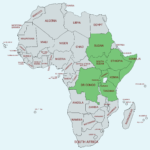About the Project
Understanding local actors and the complex systems in which they operate is fundamental to effective design, implementation, and monitoring and evaluation. Traditional, results-based management approaches typically fail to capture the real-world complexity of development programs.
LINC uses a variety of advanced analytic tools and participatory research techniques to better design for, capture, and understand systems change, as well as to elevate the perspectives of local actors in this process.
With the support of USAID’s Global Development Lab and the Bureau for Policy, Planning and Learning (PPL), the Strategic Program for Analyzing Complexity and Evaluating Systems (SPACES) seeks to integrate a systems perspective into USAID’s program cycle, from strategic planning to program design to monitoring and evaluation. The ultimate goal of these efforts is to improve sustainability and self-reliance.
SPACES is a consortium of organizations with expertise in systems and complexity, led by Johns Hopkins University, with an implementation period of 2016 to 2024. Through SPACES, LINC helps USAID Missions and Bureaus to think systemically and apply tools such as social network analysis, participatory systems mapping, and outcomes harvesting. To date, activities have been implemented in Rwanda, South Africa, Tanzania, Uganda, Zambia, Bangladesh, Guatemala, as well as at the global level.
SPACES also developed a Systems & Complexity White Paper, a how-to manual for USAID Missions, Bureaus and partners on the application of systemic design, monitoring, and evaluation practices in international development programming.

For USAID Missions and Bureaus
SPACES is a buy-in mechanism accessible to USAID Missions and Bureaus. To learn more about the buy-in process, please contact the SPACES Contracting Officer’s Representative (COR) Sophia Van der Bijl at: svanderbijl@usaid.gov.



